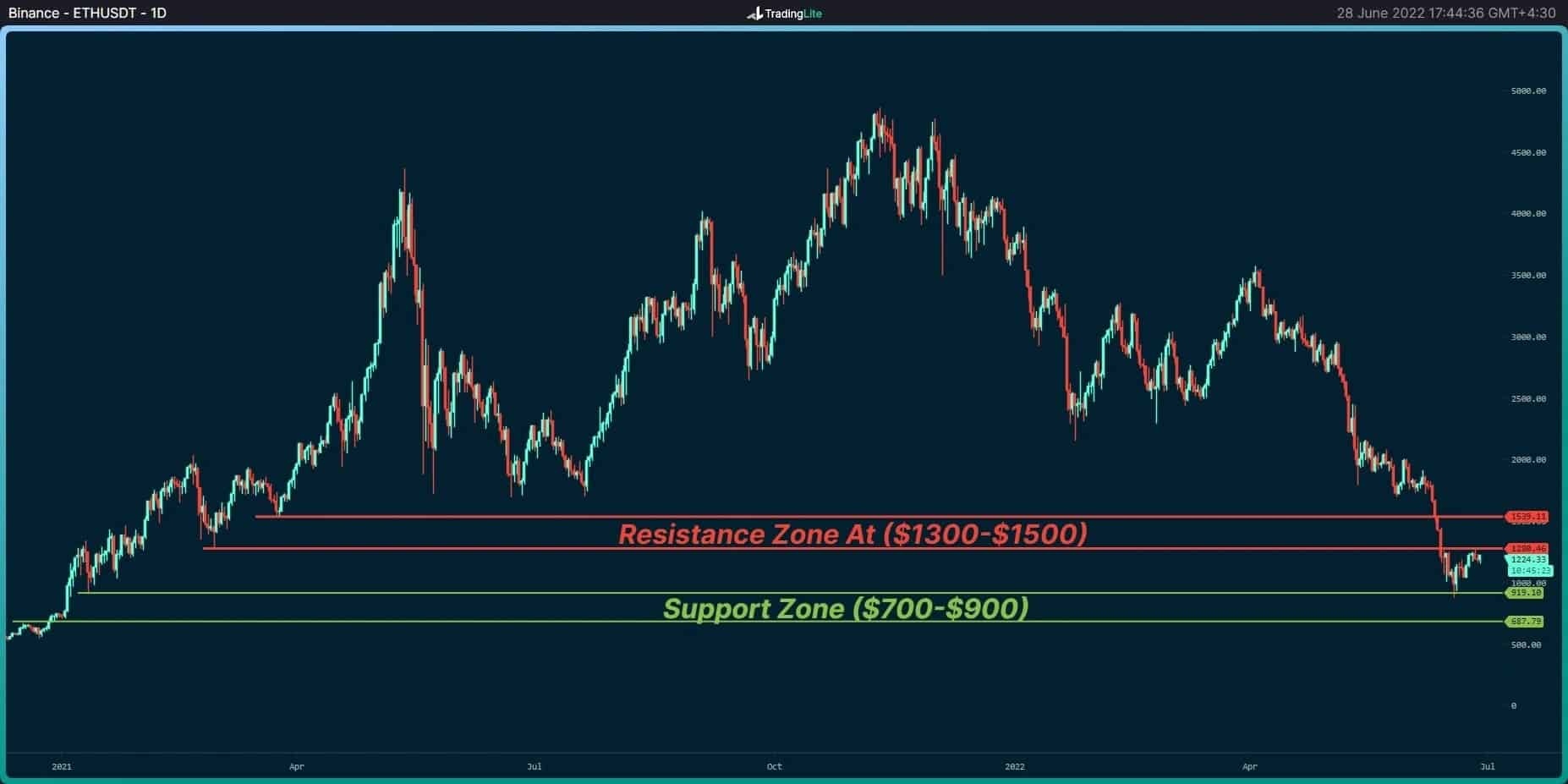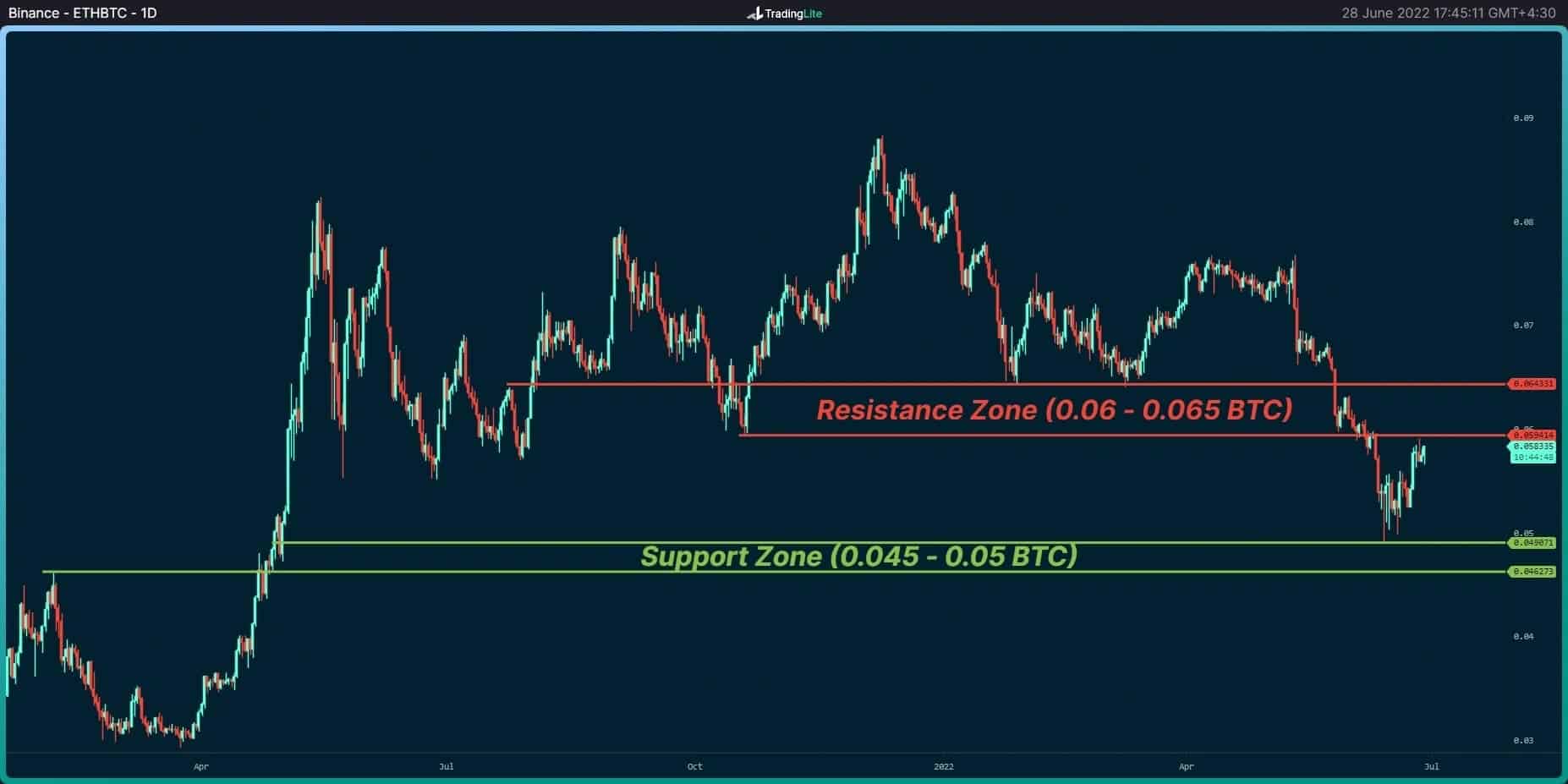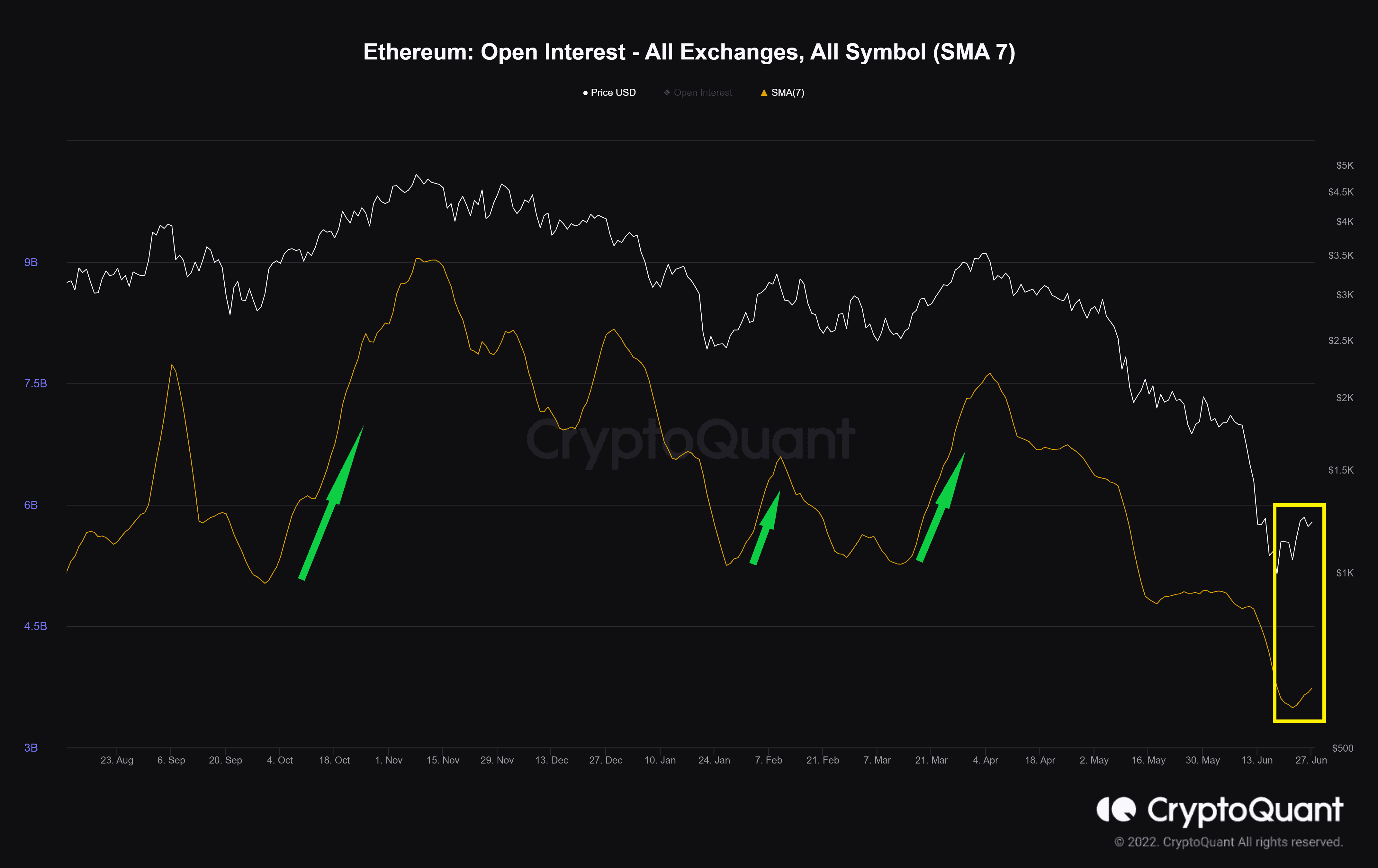ETH Price Analysis: Here’s the Level Ethereum Needs to Break to Extend Bullish Relief
The bulls have dominated the market for the past few days. A 40% growth in 10 days can surely be interpreted positively, but it’s important to examine all scenarios.
Technical Analysis
By Grizzly
The Daily Chart
The price is currently stuck below the resistance zone on the daily time frame, as shown in the chart. This zone ranges from $1300 to $1500 (in red) and was expected to provide solid support during the sharp collapse earlier in June – which it obviously failed to do. Now, it’s acting as a serious resistance.
On the other hand, buyers have turned the range of $700 to $900 into a support zone (in green).
With this structure in place, one can expect the start of a relief rally if buyers can push the price above the horizontal resistance at $1500. Then the hopes for starting a rally are restored. No significant movement can be expected until the price fluctuates between the two zones marked on the chart. With this said, the most obvious catalyst remains the ETH 2.0 merge.
Key Support Levels: $900 & $700
Key Resistance Levels: $1300 & $1500

Moving Averages:
MA20: $1273
MA50: $1680
MA100: $2366
MA200: $3037
The ETH/BTC Chart
Interestingly, the situation against BTC is almost similar to the USD pair. The price is stuck below a resistance zone (in red) in this chart. Breaking this range is necessary to continue the upward trend. The bulls have established a temporary equilibrium over the last two weeks, and if the bears fail to take control of the market, the probability of a short-term rally rises accordingly.
Key Support Levels: 0.050 BTC & 0.0.045 BTC
Key Resistance Levels: 0.06 BTC & 0.065 BTC

Open Interest Analysis
Definition: Open Interest is defined as the number of open positions (including both long and short positions) currently on a derivative exchange’s trading pairs.
Increasing open interest (OI), more liquidity, and consequently – that speculation is coming to the derivative market. The increasing trend in OI could be a confirmation of the current ongoing macro price trend.

Uptrends have often been accompanied by rising open interest. This index, which has been on a downward trend since early April, has reached its lowest level in a year. Recently, an uptrend can be seen, but its lifespan isn’t extended enough to be considered a strong sign of liquidity entering the market.
